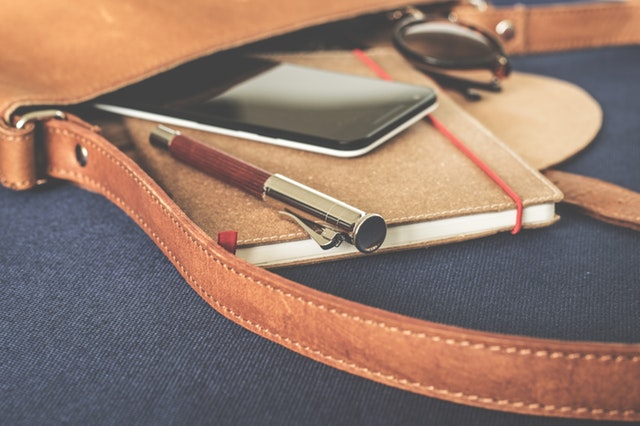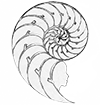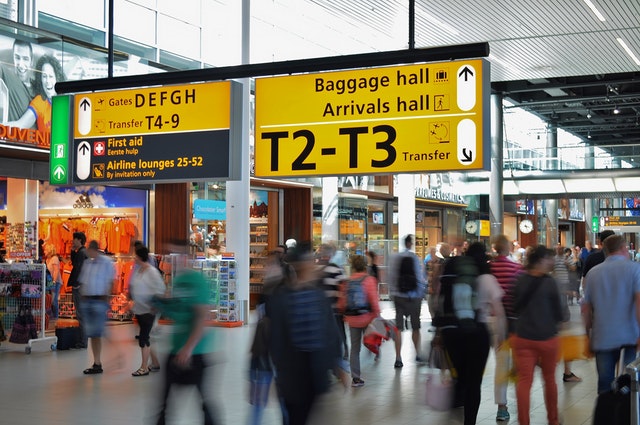
Keeping track of your stuff when you travel can be a challenge when your nervous system is overloaded.
Last week I was on my way back from holiday travels, sitting in the airport, and it became one of those moments of reflection of the marvel of the nervous system and how much change is possible. I know there are people in the world who travel effortlessly and they whole thing is an exciting adventure. For those of us with sensitive systems this isn’t generally the case – and there’s another layer besides the sensory overload that is at play: our ability to track.
Here’s how it went on my recent trip:
The morning of the flight I had a lot of time. I had packed the night before and had a relaxed morning with my family; I consider this a minor miracle. When I was clearing out my bathroom items I thought about dreams I used to have where I had to pack, then realized there was another drawer I’d forgotten or clothes in the closet, never having that feeling of confidence that I had everything I needed to take. It used to feel like that in real life – I just couldn’t keep track of it all.
I arrived at the Portland airport in plenty of time. The line wasn’t long and the self-check in machines worked perfectly – in part because I wasn’t flustered looking for my boarding pass and confirmation number. When I checked my bags, the attendant was chatting with another attendant and when he noticed me, I made eye contact and responded to his light banter. Hmm this was weird. In the past by this point in the journey I would already have been hurriedly trying to make sure I had my bags properly tagged and my ID and boarding pass in the right place rather than tucked into some random pocket only to panic trying to find it later. I would’ve been really aware of all of the people, intercom announcements, music, and lights as a physical assault…but now, no; just a simple exchange and off to security.

Animals in the wild are great trackers. They are finely attuned to the environment through the senses. For some of us humans, it’s a skill we have to build. Start practicing by sitting and letting your senses receive information – preferably starting in an environment that is not overwhelming.
After I put my belongings on the belt to go through the screening, the TSA agent asked me to remove my electronic reader and put it in a separate bin. Now I had an extra thing to track and there was a moment I knew I would’ve forgotten it in the past. Not this time.
You see, when a nervous system is sensitive, there’s so much information that is coming into the internal world that there is less attention for the external one. That means we lose track of things and appear a little aimless and distracted. Because we are. It took a while for TSA to return my reader, but I stood there thinking – wow, with a more regulated system, it’s so easy to keep track of my stuff. I know what I have, I won’t get distracted and forget it – it’s just there; a contained set in my brain.
I think some of what gets labeled as ADD could fall into this category. When your system is sensitive, your capacity for attention is diminished and you are distractible. When tested, your resources are stretched thin and your sensitivities will increase as your ability to manage decreases. The good news is it can get better. I struggled most of my life with an overwhelmed system and over time it’s gotten easier and easier.
Here’s what I hope you’ll take from my story:
- It’s not your fault. Your nervous system got formed this way for whatever reasons, and it’s not that you are doing something wrong. (Not trying hard enough, not paying attention, etc.)
- Healing is possible. Keep working on your nervous system. Awareness helps, but your system will likely need support learning to down-regulate. It changed dramatically for me and has changed for many colleagues and clients I’ve known.
- If your system is not sensitive, I hope this gives you some compassion and understanding for what others around you are going through. This is not an uncommon experience; it just might manifest differently in other people.
Here are some tips that might help:

This man has the right idea. A nice quiet spot can give your system a chance to settle before the next leg of your journey.
- Recruit help. While you are healing, it may help to recruit a trusted partner or friend to help act as your “tracker” when you’re doing something that will challenge your system. Explain to them in advance that when you get flooded you’re going to lose track. You may get agitated or really quiet. If they stay steady and calm with you, without judgment or frustration, things will go much more smoothly.
- Pace yourself. Make sure you give yourself plenty of time and that you take breaks when you need to. Find a nice quiet spot for respite – even if your gate is a few doors down.
- Orient. At each transition, stop and notice your surroundings and make sure you have everything. In airport travel, that might mean: at drop off, at the bag drop counter, security check, bathroom stops and leaving the waiting area to board.
- Pack light. Try to limit how many items you have to track – use one larger bag rather than several little ones. At first, you will need tricks for managing, like counting how many things you brought and every time you transition, recounting to make sure it’s all there.
- Be nice to yourself. Try to tamp down the judgey thoughts and forever declarations like “I’m never traveling again. It’s just too much for me,” and “other people don’t have this much of a problem with this.” Actually that’s not true, which you’ll see when you start to notice other people. Focus on getting to your destination with self acceptance and compassion.
It could make the difference between going places and having adventures or staying home because it’s too draining to go anywhere.
As you start to heal, tracking just gets better. What you can take in expands. Not just in travel – in your day to day life. It really is like a fog lifts. Healing. Is. Possible!


